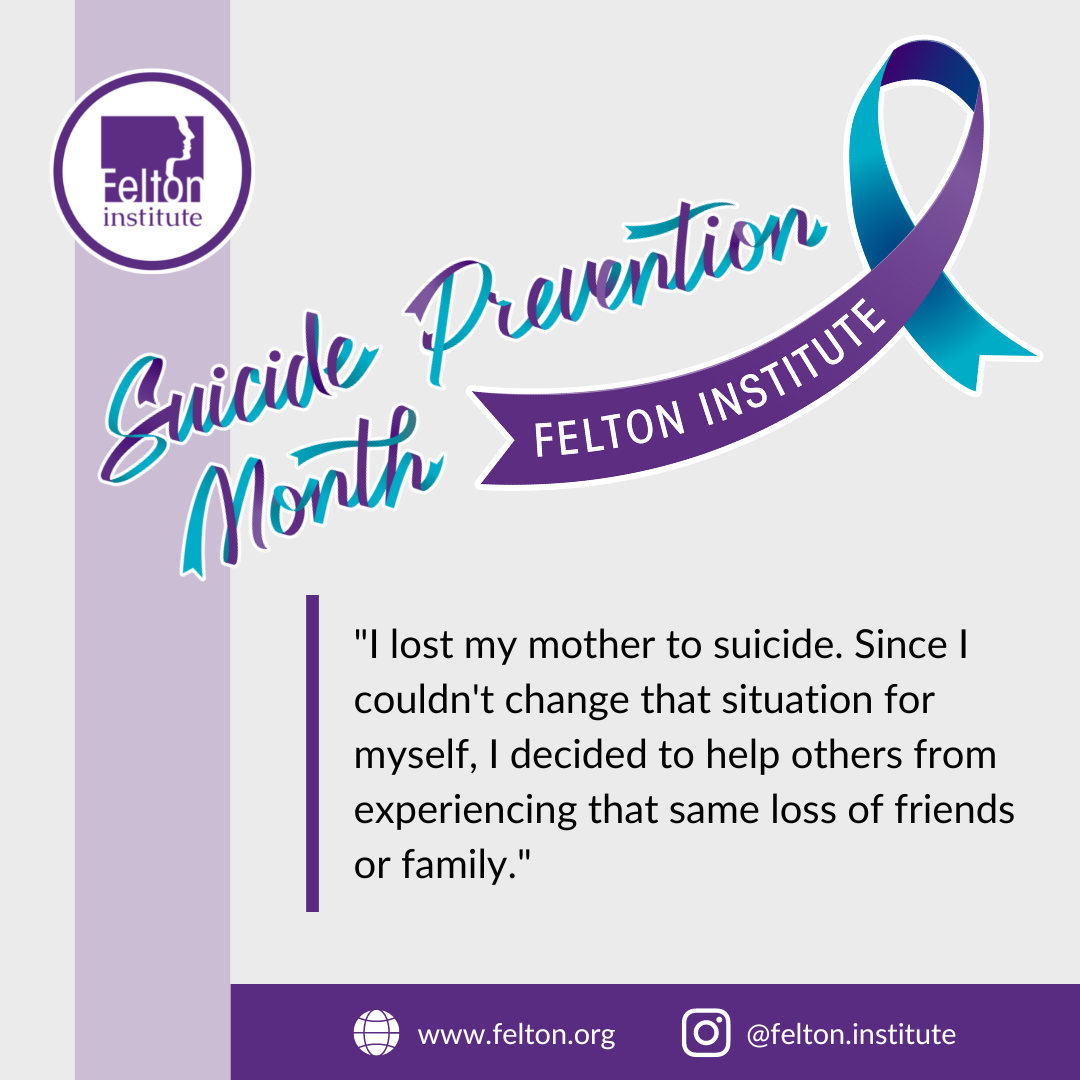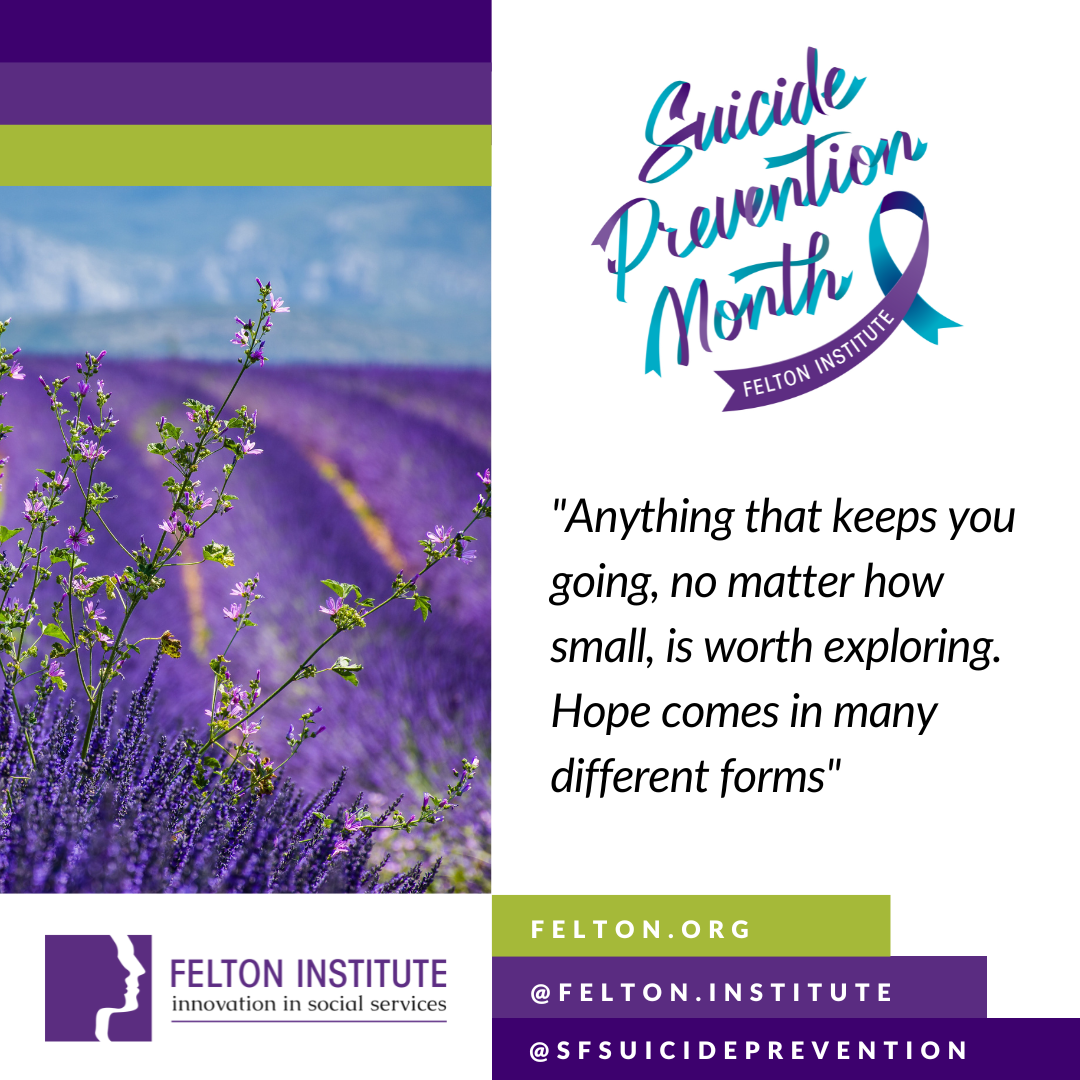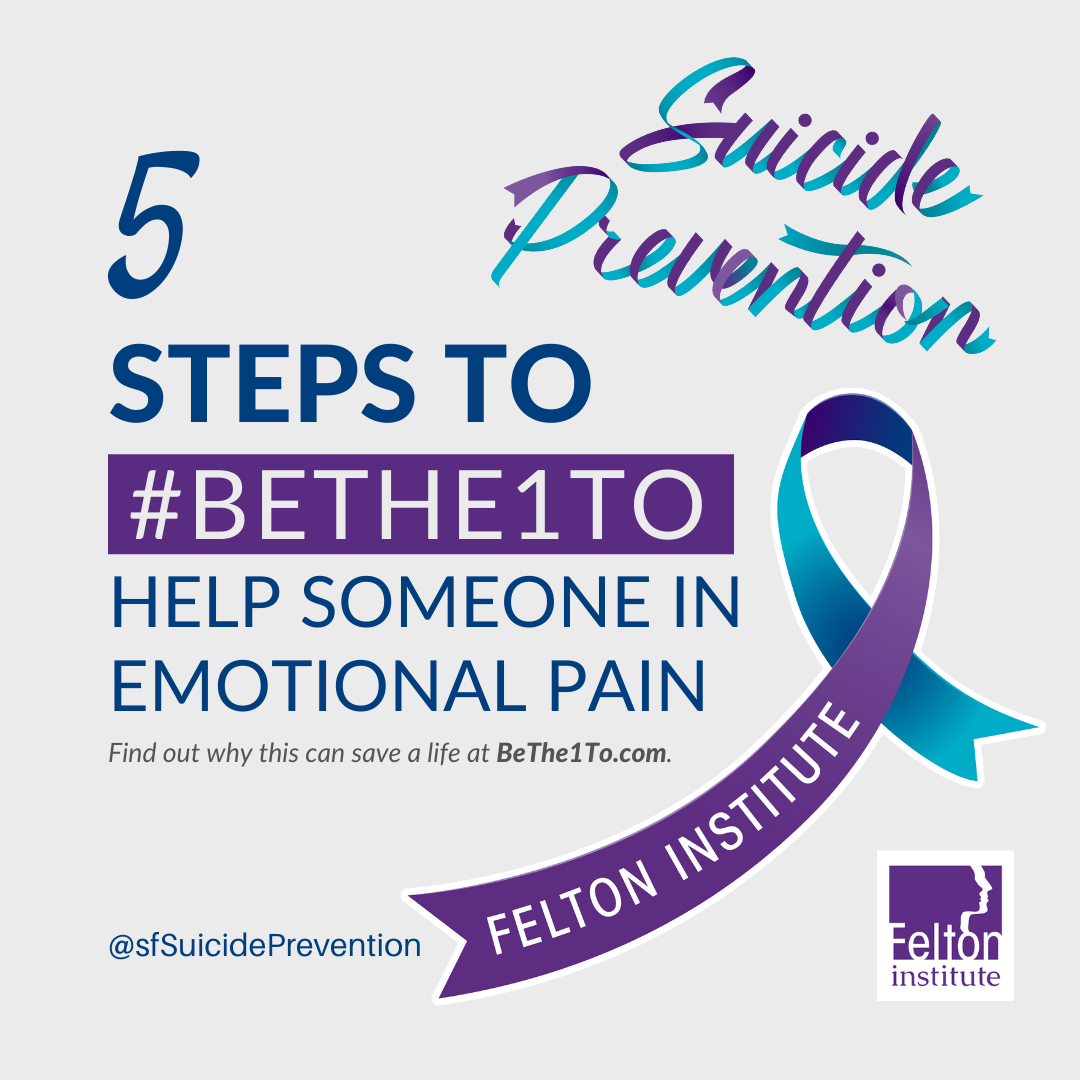You have likely heard the expression “an ounce of prevention is worth a pound of cure.” In recent decades, social services have been appropriately shifting their focus towards upstream solutions to community issues. This shift is a crucial change in how nonprofits, foundations, and government agencies respond to the issues in our communities. With this development, individuals are receiving the services they need before it becomes a crisis. However, Felton Institute asks the question: why not combine both upstream solutions and immediate response services in all social programs?

Felton’s San Francisco Suicide Prevention (SFSP) programs have been instrumental in providing vital services to those experiencing a mental health crisis as well as preventing suicides. Since SFSP first began sixty years ago, the suicide rate in San Francisco has dropped from 33 per 100,000 residents to 12.5 per 100,000. As leaders in innovation, Felton Institute has adopted a cutting-edge approach in suicide prevention that expands the efficacy of our efforts. Instead of viewing prevention and post-treatment as two separate methods of service, we have implemented “postvention” intervention, an organized response to the aftermath of suicide. Volunteers with Felton Institute’s Local Outreach to Suicide Survivors (LOSS), respond to the scene of a suicide to support those left behind. This method provides immediate support for family members and loved ones, creating an environment of comfort, and understanding in an impossibly difficult moment. People who have recently lost a loved one to suicide are at an increased risk of suicide themselves and the support the LOSS team provides can drastically reduce this risk.
The term “postvention” is likely a new word for many people, but it is an important philosophy that can shift the way we think about suicide, grief, and social services in general. What if we could apply this concept to the way we think about all community issues? Prevention and post-treatment are more interwoven than many may think. Pre- and post-services are not separate but are in fact co-dependent.
As an organization that values innovation and efficacy, the philosophy of postvention is present in many of our programs:

- Felton Engagement Specialist Team (FEST) provides immediate services such as food, clothes, and linkages to emergency medical care. To address the root cause of the issue at hand, they also provide referrals to housing, substance use centers, and mental health services.
- Young Adult Court (YAC) is a diversion program that offers compassionate alternatives to traditional criminal proceedings. While it acts as an immediate response to a young adult after a criminal offense, it also encourages beneficial behavioral health supports and services.
- Tech Squad offers tech education and broadband access to older adults and those with disabilities who have experienced isolation so that they can participate in the digital world and connect with their communities online moving forward.
Postvention may sound like a new concept for many, but by carefully intertwining pre- and post-treatment services together, there is room for profound improvements in the wellbeing of our community.
This month, when you donate to Felton Institute, you are helping programs such as San Francisco Suicide Prevention (SFSP) and Local Outreach for Survivors (LOSS) which serve community members who are experiencing grief after the loss of a loved one to suicide.
About Felton Institute: Rooted in equity, Felton Institute transforms quality of life and promotes social justice to accelerate community led change. Felton Institute is a tax-exempt organization registered 501(c)(3) nonprofit under EIN 94-1156530.
Offering more than 50 acclaimed and honored programs that address homelessness, mental health, prenatal, adolescent, adult and senior needs, Felton Institute provides evidence-based behavioral health and social services in San Francisco, Alameda, San Mateo, Marin, and Monterey counties.
Felton Institute can trace its roots back to 1889. The organization is named for its social services pioneer and executive director Dr. Katharine “Kitty” Felton who was called the “conscience of San Francisco” and was committed to ensuring that children and families in crisis have access to social services and resources in order to help them build upon their inherent strengths and develop self-sufficiency. www.felton.org



